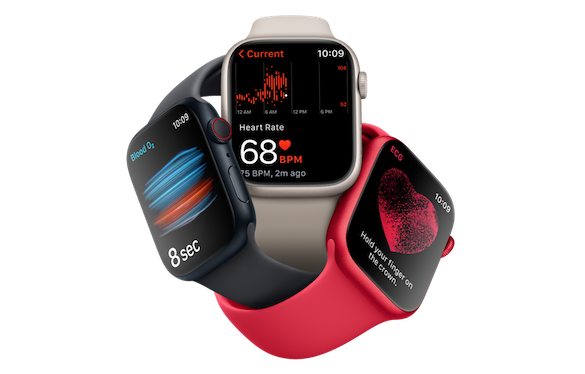-
Americas
-
Asia & Oceania
-
A-I
J-Z

EMEA Thought Leadership
Developing IQVIA’s positions on key trends in the pharma and life sciences industries, with a focus on EMEA.
Learn more -
Middle East & Africa

EMEA Thought Leadership
Developing IQVIA’s positions on key trends in the pharma and life sciences industries, with a focus on EMEA.
Learn more
Regions
-
Americas
-
Asia & Oceania
-
Europe
-
Middle East & Africa
-
Americas
-
Asia & Oceania
-
Europe
Europe
- Adriatic
- Belgique
- Bulgaria
- Czech Republic
- Deutschland
- España
- France
- Greece
- Hungary
- Ireland
- Israel
- Italia

EMEA Thought Leadership
Developing IQVIA’s positions on key trends in the pharma and life sciences industries, with a focus on EMEA.
Learn more -
Middle East & Africa

EMEA Thought Leadership
Developing IQVIA’s positions on key trends in the pharma and life sciences industries, with a focus on EMEA.
Learn more
SOLUTIONS
-
Research & Development
-
Real World Evidence
-
Commercialization
-
Safety & Regulatory Compliance
-
Technologies
LIFE SCIENCE SEGMENTS
HEALTHCARE SEGMENTS
- Information Partner Services
- Financial Institutions
- Public Health and Government
- Patient Associations
- Payers
- Providers
THERAPEUTIC AREAS
- Cardiovascular
- Cell and Gene Therapy
- Central Nervous System
- GI & Hepatology
- Infectious Diseases and Vaccines
- Oncology
- Pediatrics
- Rare Diseases
- View All

Impacting People's Lives
"We strive to help improve outcomes and create a healthier, more sustainable world for people everywhere.
LEARN MORE
Harness the power to transform clinical development
Reimagine clinical development by intelligently connecting data, technology, and analytics to optimize your trials. The result? Faster decision making and reduced risk so you can deliver life-changing therapies faster.
Research & Development OverviewResearch & Development Quick Links

Real World Evidence. Real Confidence. Real Results.
Generate and disseminate evidence that answers crucial clinical, regulatory and commercial questions, enabling you to drive smarter decisions and meet your stakeholder needs with confidence.
REAL WORLD EVIDENCE OVERVIEWReal World Evidence Quick Links

See markets more clearly. Opportunities more often.
Elevate commercial models with precision and speed using AI-driven analytics and technology that illuminate hidden insights in data.
COMMERCIALIZATION OVERVIEWCommercialization Quick Links

Service driven. Tech-enabled. Integrated compliance.
Orchestrate your success across the complete compliance lifecycle with best-in-class services and solutions for safety, regulatory, quality and medical information.
COMPLIANCE OVERVIEWSafety & Regulatory Compliance Quick Links

Intelligence that transforms life sciences end-to-end.
When your destination is a healthier world, making intelligent connections between data, technology, and services is your roadmap.
TECHNOLOGIES OVERVIEWTechnology Quick Links
CLINICAL PRODUCTS
COMMERCIAL PRODUCTS
COMPLIANCE, SAFETY, REG PRODUCTS
BLOGS, WHITE PAPERS & CASE STUDIES
Explore our library of insights, thought leadership, and the latest topics & trends in healthcare.
DISCOVER INSIGHTSTHE IQVIA INSTITUTE
An in-depth exploration of the global healthcare ecosystem with timely research, insightful analysis, and scientific expertise.
SEE LATEST REPORTSFEATURED INNOVATIONS
-
IQVIA Connected Intelligence™
-
IQVIA Healthcare-grade AI™
-
Human Data Science Cloud
-
IQVIA Innovation Hub
-
Decentralized Trials
-
Patient Experience powered by Apple
WHO WE ARE
- Our Story
- Our Impact
- Commitment to Public Health
- Code of Conduct
- Environmental Social Governance
- Privacy
- Executive Team
NEWS & RESOURCES

Unlock your potential to drive healthcare forward
By making intelligent connections between your needs, our capabilities, and the healthcare ecosystem, we can help you be more agile, accelerate results, and improve patient outcomes.
LEARN MORE
IQVIA AI is Healthcare-grade AI
Building on a rich history of developing AI for healthcare, IQVIA AI connects the right data, technology, and expertise to address the unique needs of healthcare. It's what we call Healthcare-grade AI.
LEARN MORE
Your healthcare data deserves more than just a cloud.
The IQVIA Human Data Science Cloud is our unique capability designed to enable healthcare-grade analytics, tools, and data management solutions to deliver fit-for-purpose global data at scale.
LEARN MORE
Innovations make an impact when bold ideas meet powerful partnerships
The IQVIA Innovation Hub connects start-ups with the extensive IQVIA network of assets, resources, clients, and partners. Together, we can help lead the future of healthcare with the extensive IQVIA network of assets, resources, clients, and partners.
LEARN MORE
Proven, faster DCT solutions
IQVIA Decentralized Trials deliver purpose-built clinical services and technologies that engage the right patients wherever they are. Our hybrid and fully virtual solutions have been used more than any others.
LEARN MORE
IQVIA Patient Experience Solutions powered by Apple
Empowering patients to personalize their healthcare and connecting them to caregivers has the potential to change the care delivery paradigm. IQVIA and Apple are collaborating to bring this exciting future of personalized care directly to devices patients already have and use.
LEARN MOREWORKING AT IQVIA
Our mission is to accelerate innovation for a healthier world. Together, we can solve customer challenges and improve patient lives.
LEARN MORELIFE AT IQVIA
Careers, culture and everything in between. Find out what’s going on right here, right now.
LEARN MORE
WE’RE HIRING
"Improving human health requires brave thinkers who are willing to explore new ideas and build on successes. Unleash your potential with us.
SEARCH JOBS- Blogs
- The need for a new a discipline
The promise of a new era in healthcare is exciting. The availability of ever-expanding healthcare data coupled with advances in human science and digital technology are fueling an opportunity for new approaches to bring innovative, life-saving treatments to patients faster.
Today, we have access to more information than ever before—information that is improving our understanding of human biology and helping healthcare stakeholders maker better, more informed decisions. But making sense of all of this data can still be difficult. Harnessing the myriad of data to create breakthroughs will require us to think differently using a multi-disciplinary approach known as Human Data Science.
Human Data Science will augment our ability to take advantage of important trends in healthcare and science:
Scientific advances are accelerating. A record number of new active substances (NAS) were launched in the United States in 2018, bringing 59 new treatment options to patients. Almost half of these therapies carried an orphan drug designation and more than a third of NAS launches were identified by the FDA as first-in-class, having mechanisms of action different from those of existing therapies. Despite this increased output, gaps in our understanding of underlying disease causes and molecular processes across therapy areas are slowing the overall development of life-saving treatments.
Technologies such as artificial intelligence (AI) and machine learning (ML) are becoming more prevalent in healthcare, though 85 percent of life sciences executives explain that AI is advancing faster than their organization’s ability to adopt the technologies. At the same time, information technology is being progressively incorporated into clinical practice to improve care and manage costs. Patients are getting more involved in their own health by engaging with wellness technologies and are participating in their own healthcare decision-making. Despite all of this, we are faced with disparities in healthcare access and delivery related to an individual’s environment and social factors.
Big data in healthcare presents new opportunities. Applying data science to raw, unstructured, disparate sources of data is allowing us to answer increasingly complex questions. It’s essential to understand the nuances of healthcare data to avoid the common pitfalls associated with collecting, connecting and preparing big data for advanced analysis. While data science is advancing with a plethora of new data sources, challenges remain with data collection, bias in data, and the disparate and siloed nature of data sources.
Enter, Human Data Science
The emerging discipline of Human Data Science can be applied to address some of the biggest challenges that exist in healthcare today. It leverages technology and data science built for healthcare to enable new levels of access, security and analysis that were previously out of reach. In addition, the deep domain expertise of human science is a critical element to link disparate data sources that are siloed into a more complete picture of human health. It is now possible to get more out of healthcare data by combining the analytic rigor and clarity of data science with the ever-expanding scope of human science.
The powerful forces of human ingenuity, breakthrough science and disruptive technology that Human Data Science has unleashed promise to power future healthcare advances and improve health outcomes for individuals and populations globally.
For a deeper dive into Human Data Science, explore our new video series. The series features in-depth insights into the current state of healthcare, the principles of Human Data Science, stakeholder engagement, and Human Data Science case studies.
Learn more about our vision for healthcare with Human Data Science.











